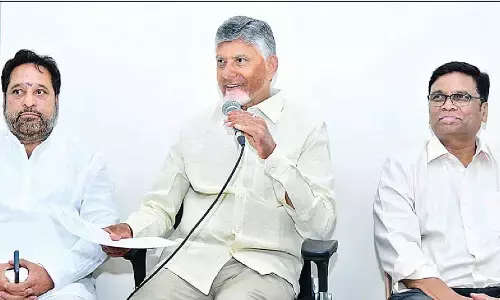NGOs: Need to depoliticise them

NGOs: Need to depoliticise them. This seems to be the response of the Union Government to a complaint by the Gujarat Government that this reputed US Foundation was interfering in India’s internal affairs, and abetting communal disharmony.
 NGOs received foreign funding worth `11,070 crore during 2013-14. On top of the list of donors was the US with donations of `4,491 crore, followed by the UK with `1,347 crore
NGOs received foreign funding worth `11,070 crore during 2013-14. On top of the list of donors was the US with donations of `4,491 crore, followed by the UK with `1,347 crore
The NGO sector has been given a big jolt by the government. In a crackdown on foreign funding of NGOs, the Home Ministry has placed the Ford Foundation of the US on its watch list and ordered that all funds coming from international organizations should be routed only with its approval due to “national security reasons”. Every transaction involving foreign funding has to be cleared by the Finance Ministry’s Department of Economic Affairs. A rude shock, indeed, whatever the provocations!
This seems to be the response of the Union Government to a complaint by the Gujarat Government that this reputed US Foundation was interfering in India’s internal affairs, and abetting communal disharmony. The complaint specifically mentioned Sabrang Trust and Citizens for Justice and Peace, which were receiving support from the Ford Foundation and were suspected to be indulging in activities prejudicial to communal harmony.
Ford Foundation has been a major donor for many research and social welfare projects in India. A total of about 1,200 institutions have received funds from it since 1952. The government has also suspended the registration of Greenpeace India for six months and froze all its accounts. This NGO had a record performance of mobilising over two-and-a-half lakh people from drought-affected areas to protest against diversion of water meant for agriculture and drinking to other purposes. It was a typical case of clash between NGO-headed popular movement and government-driven development process.
According to a press report, 42,273 NGOs are now put under watch after intelligence agency reports claimed that several charity organizations were diverting funds for purposes other than the permitted use of foreign contributions. The list includes organizations engaged in varied activities. In October last year, over 10,000 NGOs were given show cause notice for not filing their annual returns. Many of these have still not responded. This has resulted in cancellation of licences of nearly 9,000 NGOs for violation of Foreign Contribution Regulation Act (FCRA).
These drastic steps are bound to affect local, national, and international NGO activities in India. Their work has been found so useful and constructive that the Government of India itself has been promoting and encouraging them to take active part in implementing some of its schemes. However, in recent years, NGOs have been facing mixture of encouragement and restrictions. Major political parties became serious about cultivating and utilizing the services of their own NGOs. Indeed, not all NGOs are non-political in spirit and substance.
In India, the label NGO, as in many other countries, is liberally applied to denote any non-governmental organization. Schools, hospitals, charitable trusts, cooperative societies, religious associations, neighbourhood organizations are all deemed to be NGOs and are registered as trusts, societies, and non-profit organizations. CBI has estimated that there are over two million non-profit organizations working in India, i.e. one for every 600 people.
These have received about Rs 11,070 crore during 2013-14. On top of the list of donors was the US with donations of Rs 4,491 crore followed by the UK with Rs 1,347 crore. The role of NGOs has become relevant in the context of the spread of popular protest movements against some development projects in the garb of preventing forced eviction of people and obtaining just compensations. Such movements prove fodder to extremist groups interested in destabilizing the society.
Involvement of NGOs in money laundering business is technically facilitated by unaccounted welfare activities. The government may like to tighten enforcement of regulating fund flow for the NGOs. A written code of ethics governing the functioning of NGOs and imparting integrity, accountability, and transparency, rule-based financial systems, etc. may be useful. Such a code enforced by self-discipline and peer monitoring may act as a controller. But, in India, there has developed a hierarchy among NGOs based on their financial position and political clout. Our first task is to depoliticize NGOs.
By Dr S Saraswathi

















